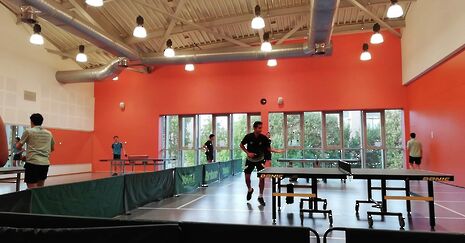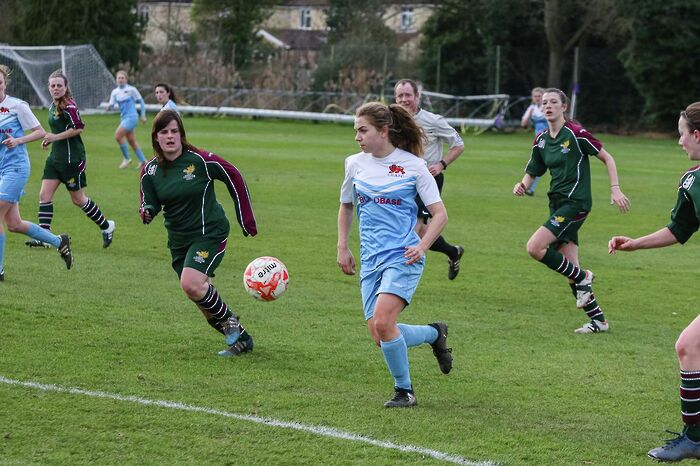Cambridge slogs Oxford in table tennis battle
The Men’s 1st team beat Oxford 11-6 in a comprehensive all-round performance

On Wednesday afternoon, Cambridge University men’s table tennis team beat Oxford at the University Sports Centre, winning 11 of the 17 matches played. Captain Aland Chan’s team put up a lively performance in the team’s first competitive fixture of the season, continuing their dominant record against the other place.
The general premise saw four Oxford players and four Cambridge players compete in four rounds of single matches, before the event finished with one doubles match. The aim was to win 11 points in a game, and the best of five games was declared the winner. Cambridge won 11 singles matches, with Omar Khassal, Aland Chan and Liam Grant winning three apiece, and Vyas Raina winning two. However, they went on to lose the more relaxed final doubles match 0-3. Abraham Ng of Oxford also put in an impressive effort, winning the most matches of the day – three single matches and the doubles (where he was partnered with Eric Foley).
The fixture was a relatively informal affair throughout, with conversations at times taking place across the table during the games. This was exemplified by the collective hunt before play began to find the correct balls, with the team rummaging through the boxes in the storage behind the courts. Most of the players had met before and casual ribbing about past performances flew across the room, along with occasional apologies and wry smiles as players mishit.
The matches themselves were relatively fast-paced, as the ball ricocheted off the table, and for much of the two hour event, the rhythmic tap of the plastic balls could be heard continuously.
The atmosphere turned more serious in the final two rounds of singles matches, as the event reached its conclusion. Whilst play had begun as the evening sunlight filtered through, by the time the event was over it was dark. As the matches ended, the players crowded around to watch the final single match play out, clapping for good shots, but otherwise remaining silently focused on the games. The doubles match at the end thus acted as a sort of bonus; Cambridge having already beaten Oxford.
Last year, Cambridge finished fifth in the 2018-19 BUCS Midlands League, winning four of their matches, and reached the second round of the Midlands Conference Cup, losing to the eventual runners-up, Warwick University.
However, the Cambridge men have had more success in the Varsity matches, typically dominating Oxford in a fixture that dates back to 1922. Their last loss to Oxford occurred in 2003, and they had a five-year streak of 10-0 wins in the years between, and including, 2010 and 2014. The current all-time standings see Cambridge having won 41 men’s first team matches and Oxford only 30, with 5 draws. Although Wednesday’s fixture was not a Varsity match (which usually occurs in February), Cambridge’s victory is surely a good sign of things to come.
The next Cambridge table tennis match is an away match in Leicester, but for those keen to try out the sport, free play sessions run on Wednesday afternoons from 4.30 to 6.30pm. Coached training sessions also take place on Friday for competitive members, whilst a more recreational session is run on Sunday.
 News / Right-wing billionaire Peter Thiel gives ‘antichrist’ lecture in Cambridge6 February 2026
News / Right-wing billionaire Peter Thiel gives ‘antichrist’ lecture in Cambridge6 February 2026 News / Cambridge students uncover possible execution pit9 February 2026
News / Cambridge students uncover possible execution pit9 February 2026 News / Epstein contacted Cambridge academics about research funding6 February 2026
News / Epstein contacted Cambridge academics about research funding6 February 2026 News / Man pleads guility to arson at Catz8 February 2026
News / Man pleads guility to arson at Catz8 February 2026 News / John’s duped into £10m overspend6 February 2026
News / John’s duped into £10m overspend6 February 2026










